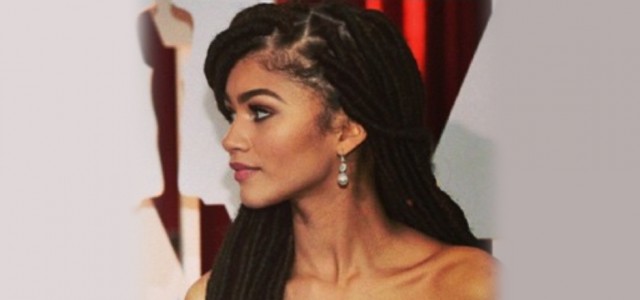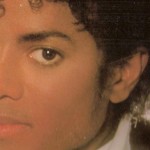Pardon me for being frank, but it doesn’t seem to take much to set the natural hair community into a frenzy. I mean there was the outrage over that Dove commercial, you know the one where the beauty company gathered a slew of curly haired girls of all ages (and races) and had them gush about why everyone should “Love Your Curls.” Yeah the natural hair community’s response to that was short and simple: stop trying to monetize our naps.
Rancic’s exact words: “This hair overwhelms her. Like, I feel like she smells like patchouli oil or maybe weed.” Cue collective face palm.
Then there was #SheaGate. Okay, that’s not a real hashtag; I just made that up. But it encapsulates the ferocity with which the natural hair community literally shamed Shea Moisture into making a statement to justify their decision to use (gasp) a little white girl in their latest ad campaign.
So it was no surprise when the daggers came flying toward Giuliana Rancic’s head after she made a marijuana reference while critiquing 18-year-old actress and singer Zendaya’s decision to wear locs to the 87th Academy Awards.
Rancic’s exact words: “This hair overwhelms her. Like, I feel like she smells like patchouli oil or maybe weed.”
Cue collective face palm.
Should we really be this outraged about Zendaya?
I have to be fair and say that I still don’t quite understand the level of outrage people are expressing. I mean, let’s be honest, we are talking about Fashion Police. The entire premise of the show is to talk badly about every person who walks the red carpet.
I have to be fair and say that I still don’t quite understand the level of outrage people are expressing … The entire premise of [Fashion Police] is to talk badly about every person who walks the red carpet.
The show’s old queen (no pun intended, and God rest her soul) Joan Rivers certainly said way worse things about people during her tenure. In fact, Rivers once refused to apologize when she said, “The last time a German looked this hot was when they were pushing Jews into the ovens,” referencing German supermodel Heidi Klum.
Cue double face palm.
With a crude comment like that in mind, and with knowledge of many other brutal remarks that became a staple of series, it’s difficult to understand why everyone is so uptight about Rancic’s comment. But I don’t think people are really pissed off at Rancic herself, rather, most are more up in arms because the history of locs goes well beyond Rancic’s lifetime, and way deeper than a tightly rolled joint.
Locs are about much more than Zendaya
Everything about locs is, has been, and may always be up for debate, beginning with the name of the hairstyle itself. Call them dreads and a loc lover or wearer may quickly call you out on your mistake. The argument is that calling them “dreadlocks” in some way indicates that the style is “dreadful”. That idea is tied into an even deeper issue of where the hairstyle originated.
Some say locs originated in India among a group of Yogis who subscribed to a life of minimalism, so much so that they even rejected the use of combs. Thus growing their hair in locs. Others credit early members of the Rastafarian movement in Jamaica, where the word “dread” is actually used as a term of endearment and honor among some groups. Thus the name “dreadlocks”.
What it means to wear the hairstyle is probably the most hotly debated part of the discussion. While historically, locs have been associated with a number of spiritual movements, the most commonly held belief today is that locs are a sign of rebellion, or even worse, unprofessionalism.
I mean who can forget the Deborah Brown Community School in Tulsa who told a 7-year-old student that her locs were not “presentable”, and then banned the style from being worn in the school. Or the the time when Hampton University’s MBA Program banned locks and cornrows from being worn by its male students. The dean at the time said locs were not “businesslike,” that the hairstyle would negatively impact students’ likelihood of being hired, and as a remedy, encouraged one student to cut his hair off.
Heck, just last year the U.S. Army issued a ban on locs and cornrows, which means that yes, if you’re brave enough to volunteer to fight and die for your country you can do so… as long as you don’t have locs or braids.
Let the absurdity of that last one sink in for a minute.
Zendaya, Bob Marley, and the truth about locs
Meanwhile others continue to view locs through the narrow lens of one Bob Marley, assuming that everyone who wears them is inherently a Rasta who smokes a whole lot of weed, and subscribes to a sort of hippies creed, reserved for environmentalists and stoners, which is how we arrive at Rancic’s point of view.
As muddled and inconclusive as the history of locs is, this entire situation does, however give rise to a more important conversation. We live in a country where many minority hairstyles are still taboo. And in lieu of discussing the problem, we’ve given way to shunning anyone who wears the styles, no matter how smart, brave or talented those persons may be.
I suppose the public’s response to Rancic’s remark could be seen as a sign that mainstream views on locs are headed in the right direction. Because ultimately, it shouldn’t take courage to wear your hair in the way that it grows out of your head, Zendaya should never have had to explain her decision to wear locs, and Americans need to take a serious lesson on cultural sensitivity and natural hairstyles.
Rancic did, of course apologize for the faux pas. While the apology for the infraction was simple and sufficient, for Rancic, the resolution to the issue is even simpler: don’t talk about things you don’t know about–even in jest–because you have no idea how deep the roots might run.![]()
Queen Muse is a freelance writer whose stories and commentaries have been featured in numerous publications, including WHYY Newsworks, Media Diversified, For Harriet, the Philadelphia Daily News, the Philadelphia Business Journal, and on NBC10.com. Queen is a 2012 White House Internship alum and has a B.A. and an M.A. in Communications from LaSalle University.






